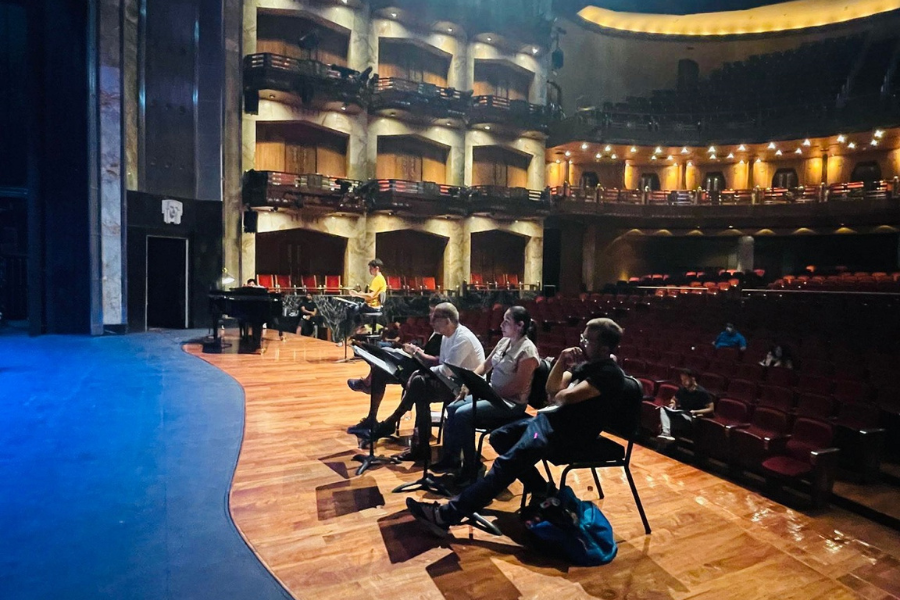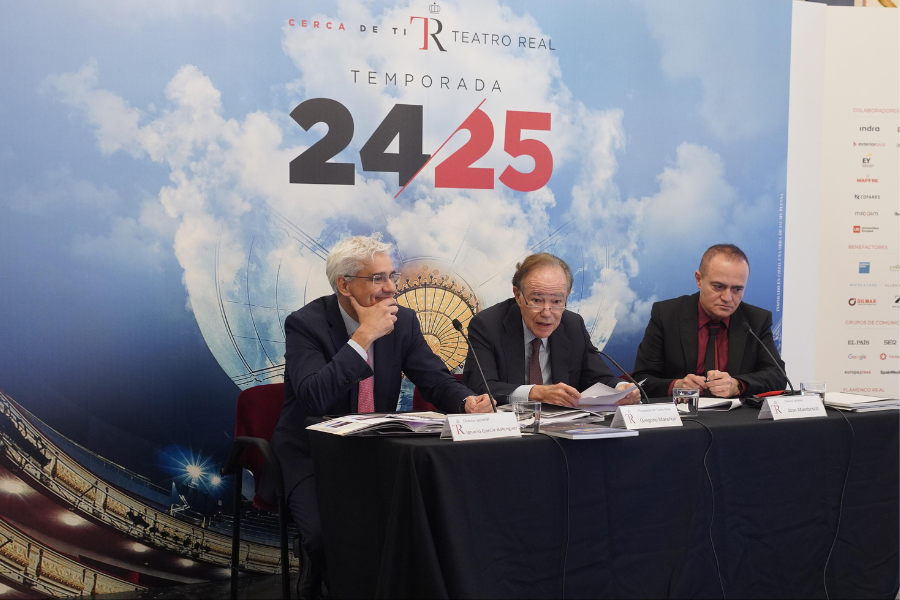Ligia Amadio conducts the Orquesta Sinfónica Nacional de Chile in a sacred concert

Ligia Amadio © Patricio Melo – CEAC U. de Chile
The cast returns to the Technical University Federico Santa María, under the leadership of the Brazilian teacher Ligia Amadio, to present the masterful religious cantata Stabat Mater composed by Antonín Dvorák.
On Saturday, September 7, at 7:30 p.m., returns to the stage of the Aula Magna Theater of the Technical University Federico Santa María, the Orquesta Sinfónica Nacional de Chile (OSNCH), under the leadership of the leading Brazilian conductor Ligia Amadio. On this occasion, the cast will present the monumental religious cantata Stabat Mater, by the Czech composer Antonín Dvorák. Together with the orchestra, thewill perform Coro Sinfónico de la Universidad de Chile and vocal soloists Andrea Aguilar (soprano), Pamela Zavala (mezzo soprano), David Rojas (tenor) and Jaime Mondaca (baritone).
This is the second year that Ligia Amadio performs with the OSNCH in the Artistic Season of the university, after her spectacular debut in the hall last year, directing Ninth Symphony Beethoven’s. Amadio, internationally recognized as one of the most important conductors of the orchestral world, in 2017 she became the first head conductor of the Montevideo Philharmonic Orchestra and in 1997 she was the first woman to win the prestigious orchestral conductor competition in Tokyo, Japan.
Upon her return to the Symphony podium, the director indicates that “From the first time I had the honor of conducting the Orquesta Sinfónica Nacional de Chile, I was awarded, not only with the first place in the II Latin American Contest of Orchestral Conducting of Santiago, but also with an excellent relationship of respect and affection with this magnificent orchestra, a relationship that only improves and is consolidated every year that I have the privilege of making music again with the excellent artists of the most important orchestra of Chile”.

Ligia Amadio junto a la Orquesta Sinfónica Nacional de Chile © Patricio Melo – CEAC U. de Chile
Stabat Mater (“was The mother standing” in Latin) is one of the most important works of Dvorák’s repertoire. In it the composer turned his deep relationship with sacred music, which began to develop in his childhood. However, the real inspiration of this masterpiece lies in hard events of his life. On this, Ligia Amadio comments that “1875 passed when her second daughter, Josefa, passed away after 2 days of birth, the first of several tragedies that would affect her family in the following years. In the first months of 1876, he began to compose that great work of Christian expression on the pain of a father in the face of the death of a son, writing 7 sections accompanied by piano. The following year, two more of his children die. In this context, Dvorák takes up the composition of his Stabat Mater, and gives it the form we know today, adding 3 sections and performing the grand orchestration ”.
In this way, the cantata proved to be the most acute expression of Antonín Dvorák’s pain and, at the same time, of his consolidation as a composer. “The importance ofsuccess Stabat Mater’s and the consequences for Dvorák’s career are well expressed in his correspondence with Velebin Urbanek, in an allusion to the concert he directed at the Royal Albert Hall, with that work. There he emphasizes, among other things, that it was difficult to describe how stimulating the fervor of the public was and that he could not have wanted a better result, which helped him see the future in a more auspicious way, after the tragedies that affected him ”, Explained the Brazilian teacher.
Tickets for this concert are worth $ 15,000 overall, $ 12,000 senior citizens and $ 8,000 students. Ticket sales at the USM Radio studios (Central House, Av. Spain 1680), Koch Optics (Av. Valparaíso 708, Viña del Mar), Esmeralda Garden (Esmeralda 1155, Valparaíso) and at the Aula Magna Theater box office on event.
.
Related stories

Mozart’s Requiem returns to Teatro de la Universidad de Chile to commemorate Holy Week







